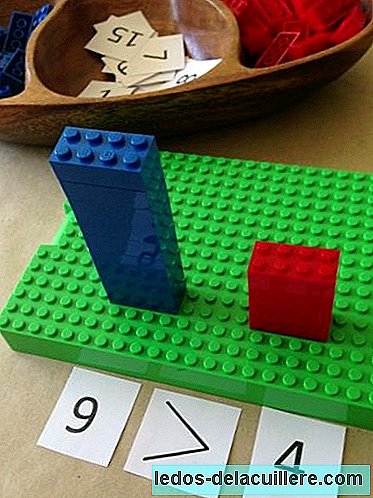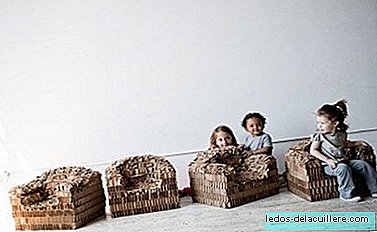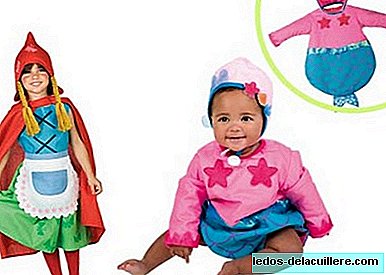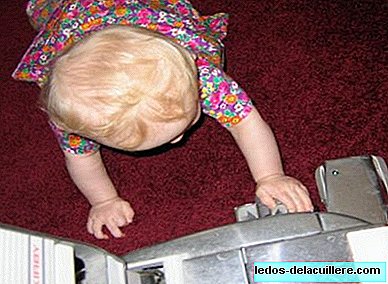The mothers of young children who are living or are already going through the famous "terrible" two years, we know how difficult it can become some days with our children at that age. One might believe that after going through the newborn stage where we practically didn't sleep at all that first year of life, things would get easier. How illusive we can be.
According to a new study, the terrible two years are nothing compared to preteen, or to be more exact, between 11 and 12 years of age, mothers stress is much higher compared to what they experience during children's childhood. Surely this does not surprise the mothers of teenagers and adults who have already gone through both stages and lived to tell it, but at the first time it prepares us - and scares us - a little for what is coming.
The study evaluated the feelings of mothers during the different stages of their children's development. The participation of moms with children in different age ranges, from childhood to adulthood. The team that carried out the study investigated several factors, including the personal well-being of the mother, paternity styles and perceptions of her children.
According to the results, the mothers experienced higher levels of stress and lower levels of happiness at the stage that is right in the middle of childhood and adolescence: 11 and 12 years old.
Professor Suniya Luthar of the University of Arizona and assistant professor Lucia Ciciolla of the University of Oklahoma were the ones who led the study, and found that the mothers of children at this stage felt lonely and empty. Their data also showed that mothers of preteens were more likely to suffer from depression, even more than the parents of teenage children.
"Their children are going through too many changes at the same time - with the onset of puberty, hormones, changes in their bodies, the constant effort they make to be popular among their peers, experimentation by testing their limits (such as trying drugs, alcohol and sex) - all this while trying to separate from their parents to establish their independence"said Professor Luthar.
According to the study, it is a stage in which both mothers and children experience a psychological metamorphosis. "Many mothers do not realize that the greatest separation from their children, the one that truly causes pain, does not occur when children leave home, but when psychologically they move away from their mothers"added Professor Luthar.
Many of these children not only experience hormonal changes, they also begin to behave more contemptuously. In his effort to separate from his parents to have his independence, they can act distant, closed, moody and even challenging with them.
One of the things that surprised researchers the most is to realize that all mothers suffered a lot at that stage. Regardless of depression or anxiety problems, their feelings about parenting and even their marital relationship, it was clear that this is the most difficult stage of motherhood.
And the parents?
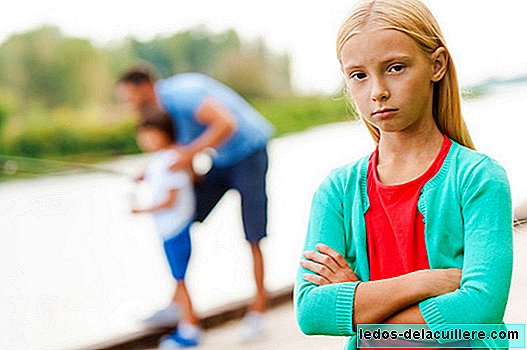
Although the role of the father is undoubtedly important in the upbringing of the children, mothers were only taken into account for the study since stereotypes about parenting still prevail in most countries and cultures.
"In most cases, mothers are the primary caregivers of children, which means that they are usually the ones who respond first when their children are stressed or distressed. Studies have shown that mothers in general are more reactive for example, to the crying of babies, compared to fathers"Professor Luthar commented. He added that this stage would probably be among the most difficult for parents.
How to make this stage less difficult

Although I still have some years to experience and live this stage in my daughter's life, I think to enjoy or suffer each stage in the development of children depends largely on your attitude as a mother or father.
They told me horror stories about the terrible two years, frightening me and warning me that this would be a complicated stage. Now that I am living them I realize that it was more the fear they made me feel before their arrival and the novelty now is to scare me with the "even more terrible" three years. But even difficult stages have their positive side.
Each stage has good and bad things, but what really matters is enjoy the good, recognize the bad and take the lessons we can from each. There are days so perfect that they seem like a movie, while there are others that seem out of a nightmare and that seem eternal. But each stage is unique, different and something is certain: they are all temporary.
The important thing is to develop a good relationship with your children, but remember that we are their parents and not their friends. There must be room for trust and communication but also for respect. Creating close ties during childhood and instilling values are what will determine many of our children's attitudes.
It's hard to see children grow up. As a mother, bittersweet feelings invade me when I see how my daughter grows, because I am glad to see that every day she learns new things, but it saddens me a little that every day I need less and become more independent. Although it will always give us a little sadness to see them take their own path, we must always keep in mind that it's all part of your physical and emotional growth, and that's how the life cycle works.



